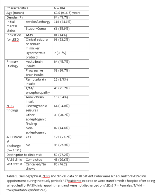Post-Acute Symptomatic Seizure (PASS) Clinic: A Unique Outpatient Care Model for Patients With Medical Management Impacted by Continuous EEG (cEEG) Monitoring
Abstract number :
1.418
Submission category :
13. Health Services (Delivery of Care, Access to Care, Health Care Models)
Year :
2018
Submission ID :
506371
Source :
www.aesnet.org
Presentation date :
12/1/2018 6:00:00 PM
Published date :
Nov 5, 2018, 18:00 PM
Authors :
Prachi Parikh, Cleveland Clinic; Jessica Fesler, Cleveland Clinic; Stephen Hantus, Cleveland Clinic Foundation; and Vineet Punia, Cleveland Clinic Foundation
Rationale: The use of continuous EEG (cEEG) has grown tremendously in last 10-15 years. This increased utilization of cEEG has led to identification of frank, or potential, epileptic activity in a growing number of hospitalized patients. Such patients are often started, and invariably discharged on one or several anti-epileptic drugs (AEDs) due to their cEEG findings. However, there is a lack of understanding about their out-patient management and long term outcomes. We started a unique, dedicated post-acute symptomatic seizure (PASS) clinic to address this unmet need. In the current study, we report our first year experience of establishing PASS clinic. Methods: Eligible patient identification: We worked with our electronic medical records (EMR) team to generate EMR alerts at the time of discharge for patients who fulfilled the following criteria: underwent cEEG during hospitalization; age =18 years; no epilepsy history at admission; discharged on one or more AEDs (except Gabapentin). The alerts helped the discharging team to schedule a 3-month post-discharge PASS clinic appointment along with a same day, long (75 minute) routine EEG, prior to the clinic visit. For the purpose of this study, we searched our outpatient clinic database for patients who were provided PASS clinic appointment from 05/20/2017 to 05/19/2018. We used our prospective cEEG database and EMR to extract relevant clinical variables. Descriptive statistical tools were used to analyze the data. Results: A total of 184 [mean age 60.6 (±16.5) years; 45.7% women] patients were provided PASS clinic appointment. On an average, the appointment was provided for 117 (±52) days post-discharge. The cEEG related variables are reported in Table 1. One-third (34.8%) patients were diagnosed with electrographic seizures on cEEG while 20.7% had other potential epileptogenic findings. Of the eligible patients, 22.3% were eventually not discharged on AEDs. A total of 50 (27.2%) patients passed away prior to their clinic appointment. Of the rest 134 patients, 49 (36.6%) were seen in the PASS clinic (details reported separately), 50 (37.3%) cancelled the appointment and rest were no-shows. We compared patients who completed versus missed (cancellations or no-shows) the PASS clinic visit (Table 2). Patients who came to the PASS clinic were more likely to have had electrographic seizures on cEEG (p = 0.002) and discharged on an AED (p = 0.003) compared to patients who missed the appointment. Conclusions: We present our 1 year experience of a new and unique clinic model for the outpatient management of increasing number of patients whose medical management is impacted by cEEG findings. Majority of patients scheduled for PASS clinic had electrographic seizure/potential epileptogenic findings. Around one-third of eligible patients presented to the clinic and were more likely to have suffered electrographic seizure or discharged on an AED compared to patients who missed their visit. Future studies will help assess the risk of epilepsy development and ideal out-patient management strategies in these patients. Funding: None

.tmb-.png?Culture=en&sfvrsn=1dbe4eed_0)